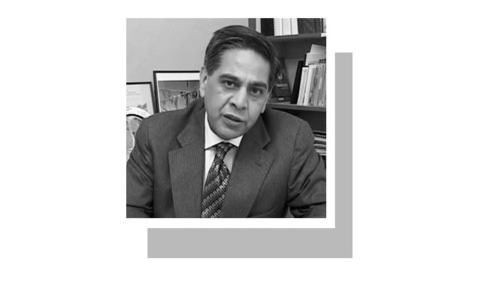WASHINGTON: A constructive engagement between Pakistan and India during the recently held water talks in Washington has raised hopes for an amicable resolution of this dispute, according to diplomatic sources.
The World Bank, which hosted the talks at its headquarters two weeks ago, also noticed this positive change and mentioned it in a press release on Aug 1, noting that the “meetings … were held in a spirit of goodwill and cooperation”.
Islamabad and New Delhi disagree over construction of the Kishenganga (330MW) and Ratle (850MW) hydroelectric power plants being built by India. (The World Bank is not financing either project). Islamabad contends that the technical design features of the two plants contravene the Indus Waters Treaty.
The plants are on a tributary of the Jhelum and Chenab rivers, respectively.
An international expert, who closely monitors the Pakistan-India water talks, told Dawn this was the first time in many years that delegates “held a constructive discussion, instead of merely stating their official positions”.
The expert said in previous talks “sometimes the two sides did not even exchange formal greetings”.
They would “just read the statements they brought with them and leave, but this time it was different,” he added.
Both sides have now returned to their capitals to consult their governments on the ideas discussed at Washington. The negotiation concluded at the World Bank headquarters on Aug 1.
The Indus Waters Treaty was signed in 1960 after nine years of negotiations between Pakistan and India with the help of the World Bank, which is a signatory. Seen as one of the most successful international treaties, it has survived frequent tensions, including conflict, and has provided a framework for irrigation and hydropower development for more than half a century.
Former US president Dwight Eisenhower described it as “one bright spot ... in a very depressing world picture that we see so often”.
But recent tensions also affected the water talks as India expressed its intention to use water as a tool to influence Islamabad’s Kashmir policy. Islamabad rejected New Delhi’s charge of supporting militants, but vowed to continue supporting the Kashmiri movement for self-determination.
That’s why the spirit of cooperation displayed during the last meeting was welcomed in Washington. Careful not to hurt this rare opportunity for a positive engagement between the two neighbours, the World Bank decided not to publicise the talks.
However, it did issue a brief statement on Aug 1, announcing that the talks had ended and the two sides had agreed to meet again next month.
The bank also issued a fact-sheet with the statement, giving a brief description of the dispute and the efforts it had made to resolve it.
One paragraph stated that under the Indus Waters Treaty, “among other uses, India is permitted to construct hydroelectric power facilities on these rivers subject to constraints specified in annexure to the treaty”.
This paragraph was interpreted by the Indian media as an endorsement of New Delhi’s position, causing the World Bank to issue a clarification.
“The 1960 Indus Waters Treaty does not bar India from constructing hydroelectric power projects on tributaries of the Jhelum and Chenab rivers with certain restrictions, the World Bank says in its fact sheet on the treaty,” the Indian media reported.
The bank, however, rejected this conclusion as “erroneous” and reminded all parties that “discussions between India and Pakistan about the Kishenganga and Ratle hydroelectric power plants are ongoing”.
A reference in the Pakistani media to former US secretary of state John Kerry’s call to Finance Minister Ishaq Dar in January also caused some unease as the Indian side apparently believed that Pakistan was trying to create an impression that the United States was playing a mediatory role, which it was not.
The disagreement
The treaty designates the Jhelum and Chenab Rivers as well as the Indus as “western rivers”, to which Pakistan has unrestricted use. Among other uses, the agreement permits India to construct hydroelectric power facilities on these rivers subject to constraints specified in annexure to the treaty.
Pakistan asked the World Bank to facilitate the setting up of a “court of arbitration” to look into its concerns about designs of the Kishenganga and Ratle projects. India asked for the appointment of a neutral expert for the same purpose. These requests came after the Permanent Indus Commission, which is part of the treaty’s resolution mechanism, failed to resolve the dispute.
Published in Dawn, August 10th, 2017














































